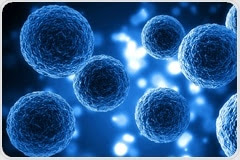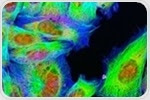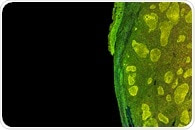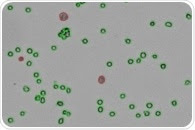|
| | Fluorescence | |
| | The latest fluorescence news from NewsMedical | |
|
|
 |
| |  Linking Synaptic Specificity to Hippocampal Circuit Function Linking Synaptic Specificity to Hippocampal Circuit Function
The developmental transition between axon guidance and synapse formation is critical for circuit assembly but still poorly understood. This webinar presents evidence that this key transition can be regulated by axon guidance cues switching their function to regulate synaptogenesis with subcellular specificity.
The presentation discusses Bruker's uncovering of a novel role for the axon guidance molecule Robo2 in excitatory synapse formation in the mouse hippocampus. Cell-autonomous deletion of Robo2 from CA1 pyramidal neurons (PNs) leads to a drastic reduction of the number of excitatory synapses specifically in proximal dendritic compartments.
Join this free Webinar on May 4 to learn more.
| |
|
|
|
|
 |
| | Studying Protein Oligomerization using Fluorescence Microscopy  Proteins are important in cellular processes. This article looks at studying proteins using fluorescence microscopy. Proteins are important in cellular processes. This article looks at studying proteins using fluorescence microscopy. | |
|
| | Technology Advances in Bacteria Detection  Bacterial infections are an increasing public health threat globally. The ability to rapidly detect infections in life-threatening conditions is vital. Bacterial infections are an increasing public health threat globally. The ability to rapidly detect infections in life-threatening conditions is vital. | |
|
| | Novel 3D Imaging Technology Makes Fluorescence Microscopy More Efficient  A research team led by Dr Kevin Tsia from the University of Hong Kong (HKU), developed a new optical imaging technology -- Coded Light-sheet Array Microscopy (CLAM) -- which can perform 3D imaging at high speed, and is power efficient and gentle to preserve the living specimens during scanning at a level that is not achieved by existing technologies. A research team led by Dr Kevin Tsia from the University of Hong Kong (HKU), developed a new optical imaging technology -- Coded Light-sheet Array Microscopy (CLAM) -- which can perform 3D imaging at high speed, and is power efficient and gentle to preserve the living specimens during scanning at a level that is not achieved by existing technologies. | |
|
| | New technique for imaging proteins in 3D  A team of scientists including researchers at the National Synchrotron Light Source II (NSLS-II)--a U.S. Department of Energy Office of Science User Facility at DOE's Brookhaven National Laboratory--have demonstrated a new technique for imaging proteins in 3-D with nanoscale resolution. A team of scientists including researchers at the National Synchrotron Light Source II (NSLS-II)--a U.S. Department of Energy Office of Science User Facility at DOE's Brookhaven National Laboratory--have demonstrated a new technique for imaging proteins in 3-D with nanoscale resolution. | |
|
|
|
|





























.png)












No hay comentarios:
Publicar un comentario